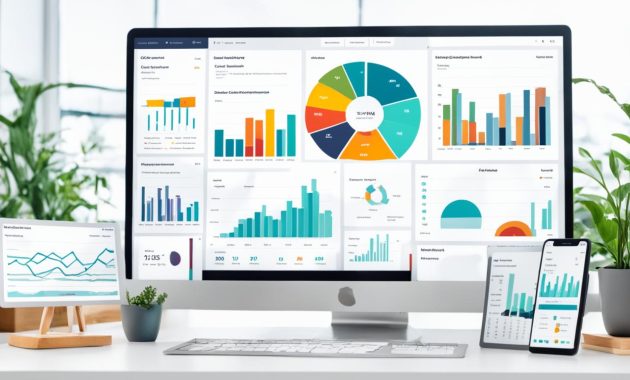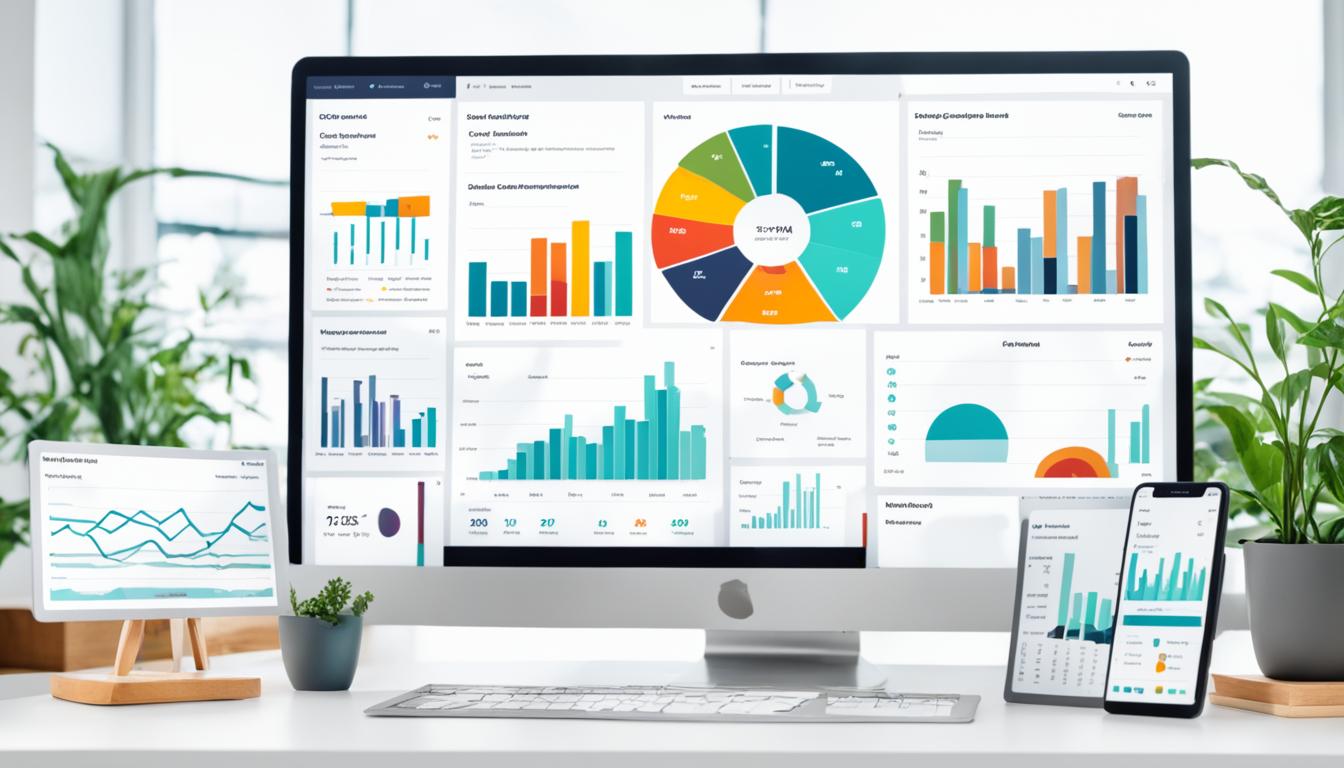
Unlock Business Intelligence Software for Maximum Results: A Strategic Guide
In today’s data-driven world, businesses are swimming in information. The challenge isn’t just collecting this data; it’s understanding it. This is where business intelligence (BI) software steps in. It transforms raw data into actionable insights. This guide provides a comprehensive overview of how to unlock business intelligence software for maximum results. We’ll explore the benefits, key features, and strategies for effective implementation.
The power of business intelligence software lies in its ability to reveal patterns and trends. It allows businesses to make informed decisions. This leads to improved efficiency and profitability. It can provide a competitive edge. Companies can use BI to understand customer behavior. They can optimize operations and identify new opportunities. This is the key to sustained growth in a dynamic market.
Understanding Business Intelligence Software
Business intelligence software encompasses a range of tools and applications. These tools help organizations analyze data. They can transform raw data into meaningful information. This information supports strategic and tactical decision-making. BI solutions pull data from various sources. These sources include databases, spreadsheets, and cloud services. They then process and present this data in easy-to-understand formats.
These formats include dashboards, reports, and visualizations. This allows users to identify trends. They can also track key performance indicators (KPIs). The primary goal of BI is to provide a clear and comprehensive view of business performance. This enables data-driven decision making.
Key Features of Effective BI Software
Choosing the right business intelligence software is crucial. Different software offers different features. Several key features are essential for maximizing results. These features are vital for effective data analysis and reporting. They can significantly impact business performance.
- Data Integration: The ability to connect to various data sources. This includes databases, cloud services, and spreadsheets.
- Data Visualization: Tools to create charts, graphs, and dashboards. These tools help to present data in an easily understandable format.
- Reporting and Analytics: Capabilities to generate reports and perform in-depth analysis. This includes ad-hoc queries and data mining.
- Data Warehousing: The ability to store and manage large datasets. This is crucial for long-term data analysis.
- Mobile Access: Access to data and reports on mobile devices. This allows for real-time monitoring and decision-making on the go.
- Collaboration Tools: Features that enable teams to share insights and collaborate on reports. This promotes better communication.
- Predictive Analytics: Capabilities to forecast future trends. This helps with proactive decision-making.
Benefits of Implementing Business Intelligence Software
Implementing business intelligence software offers numerous benefits. These benefits can transform how a business operates. They can improve efficiency and drive profitability. Understanding these benefits is key to realizing the full potential of BI.
- Improved Decision-Making: BI provides data-driven insights. This leads to more informed and strategic decisions.
- Increased Efficiency: Automation of data analysis and reporting. This frees up time for more strategic tasks.
- Enhanced Customer Understanding: Analyzing customer data. This can reveal trends and preferences. This leads to better customer service and marketing.
- Competitive Advantage: Gaining insights that competitors may miss. This helps to stay ahead in the market.
- Cost Reduction: Identifying areas for cost optimization. This can lead to more efficient resource allocation.
- Improved Compliance: Streamlining reporting processes. This ensures compliance with regulatory requirements.
Strategies for Successful Implementation
Implementing business intelligence software is a strategic undertaking. It requires careful planning and execution. A well-defined strategy is crucial for maximizing results. This ensures that the software aligns with business goals.
- Define Business Objectives: Clearly define the goals you want to achieve. Identify the key performance indicators (KPIs) that will measure success.
- Choose the Right Software: Evaluate different BI solutions. Select the one that best fits your needs. Consider factors such as cost and scalability.
- Data Preparation: Clean and prepare your data. Ensure its accuracy and consistency.
- User Training: Provide training to all users. This ensures they can effectively use the software.
- Implementation and Deployment: Plan the implementation process carefully. Deploy the software in phases if necessary.
- Monitoring and Optimization: Continuously monitor the software’s performance. Make adjustments to optimize results.
- Data Security: Implement robust security measures. Protect sensitive data from unauthorized access.
Choosing the Right Business Intelligence Software
Selecting the appropriate business intelligence software is a critical step. The market offers a wide array of options. Each solution has its own strengths and weaknesses. Careful consideration is important for a successful implementation.
Factors to consider when choosing software include:
- Cost: Consider the total cost of ownership. This includes licensing fees, implementation costs, and ongoing maintenance.
- Scalability: Ensure the software can grow with your business.
- Ease of Use: The software should be user-friendly. It should be easy to learn and use.
- Integration: The software should integrate with your existing systems.
- Support: Check the availability of customer support. This is crucial for resolving issues.
- Features: Evaluate the features offered. Ensure they meet your specific needs.
Real-World Examples of BI Success
Many businesses have achieved remarkable results. They have successfully implemented business intelligence software. These examples highlight the power of BI. They also demonstrate its potential to transform operations.
Retail: A major retailer used BI to analyze sales data. They identified trends and optimized their inventory. This resulted in increased sales and reduced waste. They improved their understanding of customer behavior.
Healthcare: Hospitals use BI to analyze patient data. This data helps to improve patient care. It helps to optimize operational efficiency. This leads to better patient outcomes and reduced costs.
Manufacturing: Manufacturers use BI to monitor production processes. This helps them identify inefficiencies. They also optimize their supply chains. This leads to increased productivity and reduced costs.
Finance: Financial institutions use BI to analyze financial data. This helps to detect fraud and manage risk. It also helps to improve customer service. This leads to better financial performance.
The Future of Business Intelligence
The field of business intelligence software is constantly evolving. New technologies are emerging. These technologies are shaping the future of data analysis. Staying informed about these trends is essential. This will help businesses stay competitive.
Key trends include:
- Artificial Intelligence (AI) and Machine Learning (ML): AI and ML are being integrated into BI tools. This allows for advanced analytics. They can also automate insights generation.
- Cloud-Based BI: Cloud-based BI solutions are becoming more popular. They offer greater flexibility and scalability.
- Data Democratization: Making data and insights accessible to everyone. This empowers more people to make data-driven decisions.
- Self-Service BI: Allowing users to create their own reports and dashboards. This reduces reliance on IT departments.
- Big Data Analytics: Processing and analyzing large datasets. This allows for more comprehensive insights.
Conclusion: Maximizing Your Investment in BI
To unlock business intelligence software for maximum results, a strategic approach is vital. Implementing the right tools is essential. It also requires careful planning and execution. The benefits of BI are significant. They can transform how businesses operate. By following the strategies outlined, businesses can harness the power of data. They can make informed decisions. This will drive growth and achieve a competitive edge. Continuous optimization and staying informed about industry trends are crucial for long-term success. The journey to data-driven decision-making is ongoing. Embrace the power of business intelligence software.
[See also: The Importance of Data Visualization in Business, Choosing the Right BI Solution for Your Needs, Data Security Best Practices for BI]

